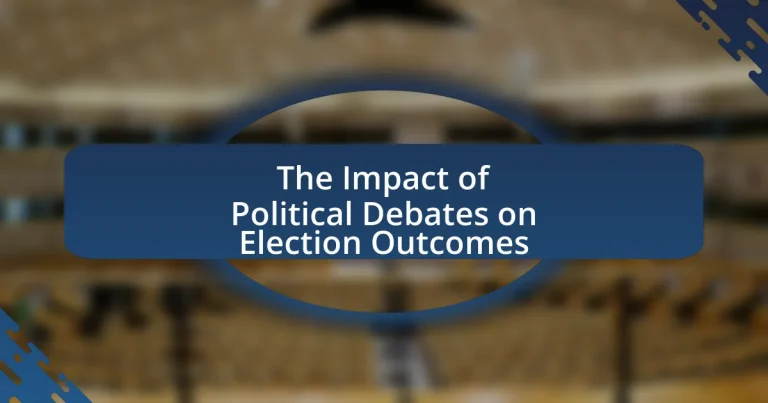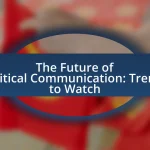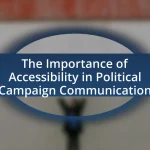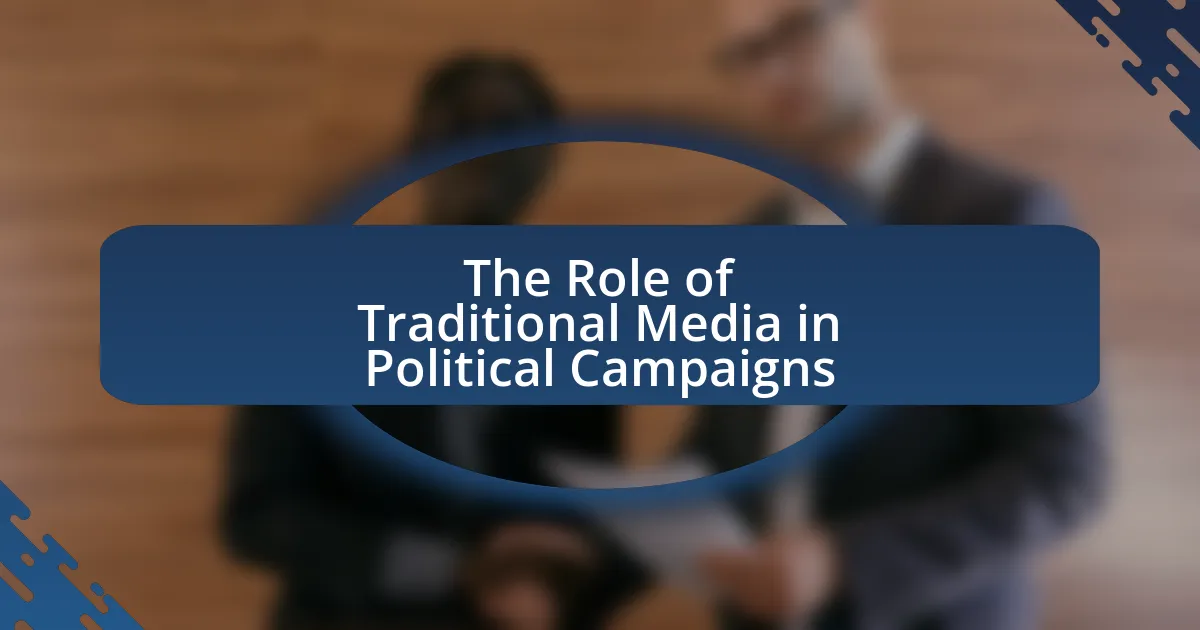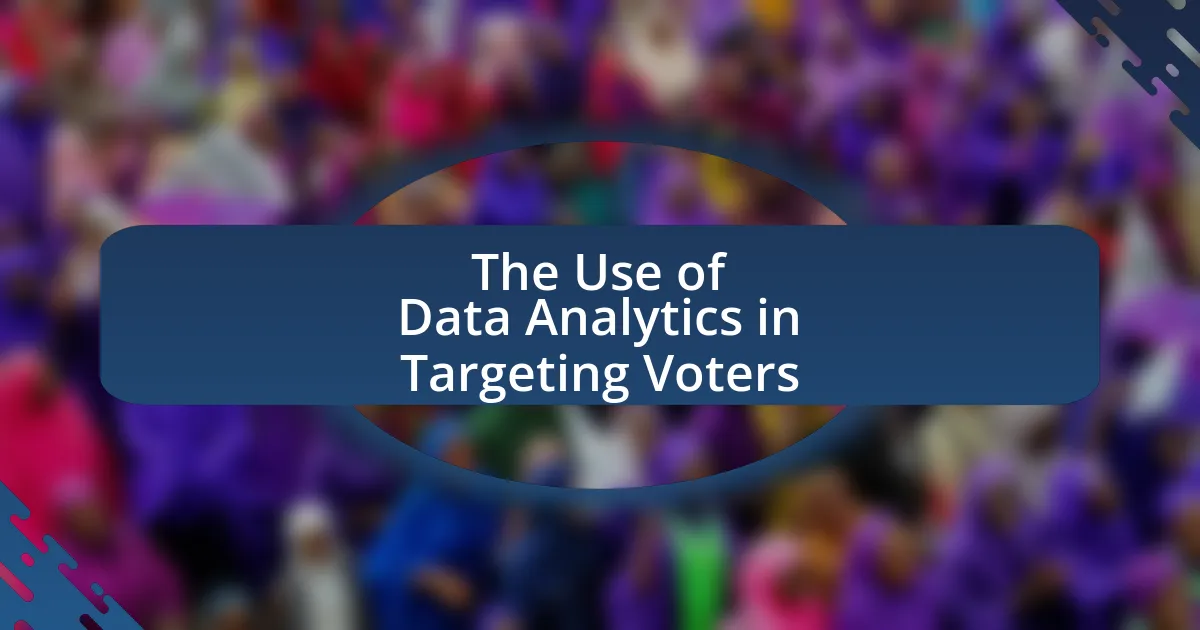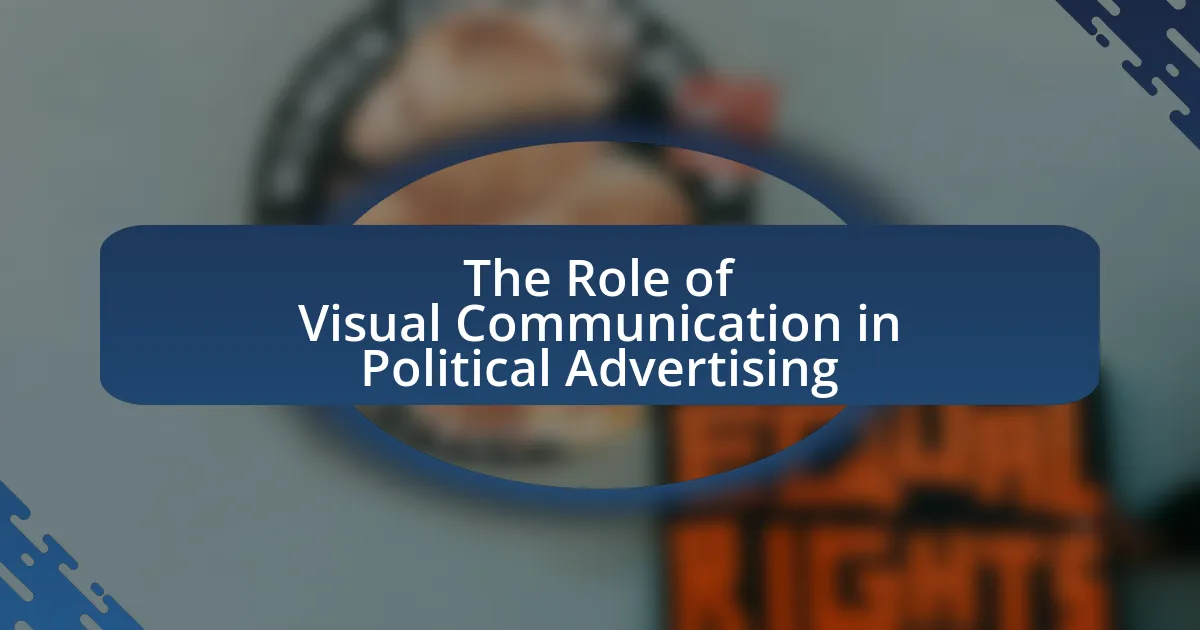Political debates play a crucial role in shaping election outcomes by influencing public perception and voter decision-making. Research indicates that debates can significantly alter voter preferences, particularly among undecided and independent voters, with many viewers reporting that debates help clarify their choices. The article explores how debate performances affect voter trust, the impact of different demographics on debate engagement, and the long-term effects of debates on electoral narratives. Additionally, it examines strategies candidates can employ to sway undecided voters and the best practices for effective debate preparation, highlighting the importance of clear communication and fact-based arguments in enhancing debate effectiveness.
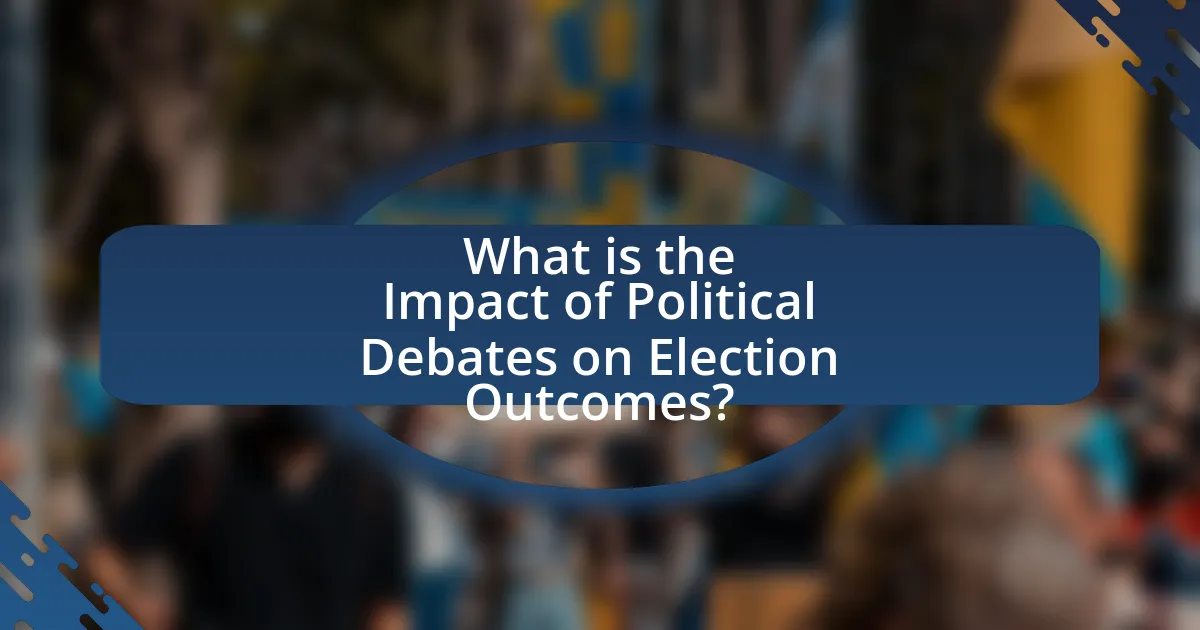
What is the Impact of Political Debates on Election Outcomes?
Political debates significantly influence election outcomes by shaping public perception and voter decision-making. Research indicates that debates can alter voter preferences, with studies showing that candidates who perform well in debates often experience a boost in polls. For instance, a study by the Pew Research Center found that 63% of debate watchers reported that the debates helped them decide whom to vote for in the 2016 presidential election. Additionally, debates provide a platform for candidates to clarify their positions, counter opponents, and engage with key issues, which can sway undecided voters. The impact is particularly pronounced among independent voters, who may be more influenced by debate performances than those with strong party affiliations.
How do political debates influence voter perceptions?
Political debates significantly influence voter perceptions by shaping opinions on candidates’ competence, policies, and character. During debates, candidates present their views and respond to opponents, allowing voters to assess their knowledge and ability to articulate positions. Research indicates that debates can sway undecided voters; for instance, a study by the Pew Research Center found that 63% of viewers reported changing their opinions about candidates after watching a debate. Additionally, debates often highlight key issues, which can lead to shifts in voter priorities and preferences. This dynamic interaction between candidates and voters during debates plays a crucial role in shaping electoral outcomes.
What role do debate performances play in shaping public opinion?
Debate performances significantly influence public opinion by providing a platform for candidates to articulate their policies and engage with opponents. These performances often serve as pivotal moments in campaigns, where candidates can sway undecided voters and reinforce the views of their supporters. For instance, a study by the Pew Research Center found that 67% of viewers reported that debates helped them form opinions about candidates, highlighting the debates’ role in shaping perceptions. Additionally, memorable moments or gaffes during debates can lead to viral media coverage, further amplifying their impact on public sentiment.
How do candidates’ responses during debates affect voter trust?
Candidates’ responses during debates significantly influence voter trust by shaping perceptions of their credibility and competence. When candidates provide clear, honest, and well-articulated answers, they tend to foster a sense of reliability among voters. For instance, a study by the Pew Research Center found that 63% of viewers felt more confident in a candidate’s integrity when they effectively addressed tough questions during debates. Conversely, evasive or inconsistent responses can lead to skepticism and diminish trust, as voters may perceive such behavior as a lack of transparency. Therefore, the nature of candidates’ responses directly correlates with the level of trust voters place in them.
Why are political debates considered crucial in elections?
Political debates are considered crucial in elections because they provide a platform for candidates to present their policies, engage with opponents, and connect with voters. These debates allow candidates to clarify their positions on key issues, which can significantly influence public perception and voter decision-making. Research indicates that debates can sway undecided voters; for instance, a study by the Pew Research Center found that 63% of debate watchers reported that the debates helped them make a decision about whom to vote for. Additionally, debates often highlight candidates’ communication skills and ability to think on their feet, which can impact their overall appeal to the electorate.
What historical examples illustrate the significance of debates in elections?
The 1960 Kennedy-Nixon debate exemplifies the significance of debates in elections, as it marked the first televised presidential debate in U.S. history and significantly influenced public perception. John F. Kennedy’s confident and charismatic performance contrasted sharply with Richard Nixon’s less polished appearance, leading to a shift in voter sentiment; polls indicated that viewers who watched the debate favored Kennedy over Nixon. Additionally, the 1984 Reagan-Mondale debate showcased the impact of a single moment, where Ronald Reagan’s humorous response to concerns about his age helped solidify his lead in the election, ultimately resulting in a landslide victory. These examples illustrate how debates can shape voter opinions and alter the trajectory of electoral outcomes.
How do debates compare to other campaign strategies in terms of impact?
Debates have a significant impact on campaign strategies, often more so than other methods such as advertisements or rallies. Research indicates that debates can sway undecided voters and reinforce the opinions of supporters, with studies showing that candidates who perform well in debates can experience a measurable increase in polling numbers, sometimes by as much as 5-10%. For instance, a study by the Pew Research Center found that 63% of debate watchers reported that the debates influenced their voting decisions. This contrasts with other strategies, where advertisements may not have the same immediate effect on voter perception and decision-making. Thus, debates serve as a critical platform for candidates to directly engage with voters, making them a uniquely impactful component of campaign strategies.
What factors contribute to the effectiveness of political debates?
The effectiveness of political debates is primarily influenced by the clarity of candidates’ messages, their ability to engage with the audience, and the format of the debate itself. Clear messaging allows candidates to communicate their policies and positions effectively, which is crucial for voter understanding. Engagement with the audience, including the use of relatable examples and addressing voter concerns, enhances connection and persuasion. Additionally, the debate format, whether it includes direct questioning, rebuttals, or audience interaction, can significantly impact how candidates present their arguments and respond to opponents. Research indicates that debates can sway undecided voters, with a study by the Pew Research Center showing that 63% of debate watchers reported that the debates influenced their opinions on candidates.
How does the format of a debate influence its outcome?
The format of a debate significantly influences its outcome by shaping the structure of arguments, the engagement of the audience, and the candidates’ performance. For instance, formats that allow for direct rebuttals, such as Lincoln-Douglas debates, enable candidates to directly challenge each other’s points, often leading to a clearer distinction between their positions. Research by the Pew Research Center indicates that debates with a town hall format, which encourages audience interaction, can sway undecided voters more effectively than traditional formats. This interaction fosters a sense of relatability and authenticity, which can enhance a candidate’s appeal. Additionally, the time allocated for responses and the moderation style can impact how well candidates articulate their policies, ultimately affecting voter perception and decision-making.
What are the key elements of a successful debate performance?
The key elements of a successful debate performance include clarity of argument, effective communication skills, strong rebuttal strategies, and thorough preparation. Clarity of argument ensures that the debater presents their points in a straightforward manner, making it easier for the audience and judges to follow. Effective communication skills, such as confident body language and vocal variety, enhance the persuasiveness of the message. Strong rebuttal strategies allow the debater to counter opposing arguments effectively, demonstrating critical thinking and adaptability. Thorough preparation involves researching the topic extensively, anticipating counterarguments, and practicing delivery, which collectively contribute to a compelling performance. These elements are supported by studies indicating that well-prepared candidates tend to perform better in debates, influencing voter perceptions and ultimately impacting election outcomes.
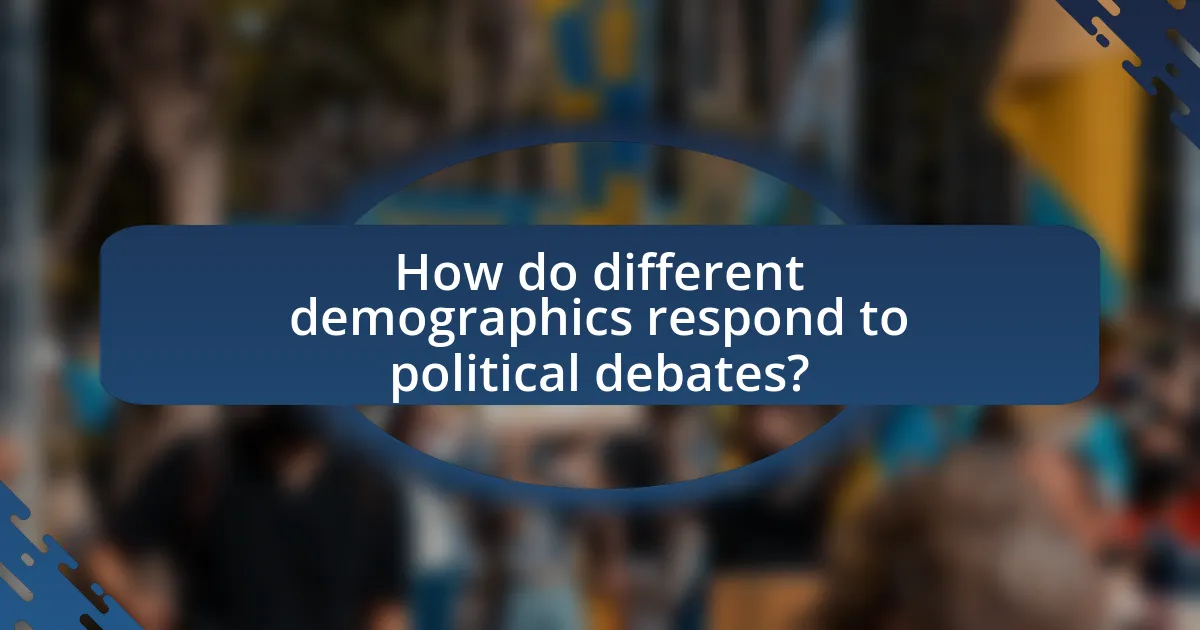
How do different demographics respond to political debates?
Different demographics respond to political debates in varied ways, influenced by factors such as age, education, and political affiliation. For instance, younger voters often prioritize issues like climate change and social justice, leading them to engage more with candidates who address these topics during debates. In contrast, older voters may focus on economic stability and healthcare, which shapes their reactions to candidates’ positions on these issues. Research by the Pew Research Center indicates that educational attainment also plays a significant role; individuals with higher education levels tend to analyze debates more critically and are more likely to change their voting intentions based on debate performances. Furthermore, political affiliation affects perceptions, as individuals often interpret debate content through the lens of their existing beliefs, reinforcing partisan divides.
What are the variations in debate impact across age groups?
Debate impact varies significantly across age groups, with younger voters often being more influenced by debates than older voters. Research indicates that individuals aged 18-29 are more likely to change their opinions based on debate performances, as they are still forming their political identities and are more engaged with social media discussions surrounding debates. In contrast, older voters, particularly those over 50, tend to have more established political views and are less likely to be swayed by debate content. A study by the Pew Research Center found that 62% of younger voters reported being influenced by debates, compared to only 38% of older voters, highlighting the generational differences in debate impact.
How do younger voters perceive debate performances differently than older voters?
Younger voters perceive debate performances as more relevant and engaging compared to older voters, who often focus on traditional metrics of debate success such as policy knowledge and experience. Research indicates that younger voters prioritize authenticity, relatability, and the emotional connection of candidates during debates, which influences their voting decisions. For instance, a study by the Pew Research Center found that 62% of voters aged 18-29 consider a candidate’s personality and character as crucial factors, while only 45% of voters aged 50 and older share this view. This generational difference highlights how younger voters are more likely to be swayed by the presentation and style of debate performances rather than solely the content.
What demographic factors influence debate viewership and engagement?
Demographic factors that influence debate viewership and engagement include age, education level, income, and political affiliation. Younger audiences, particularly those aged 18-29, tend to engage less with traditional debates compared to older demographics, with viewership peaking among individuals aged 50 and above. Higher education levels correlate with increased debate engagement, as individuals with college degrees are more likely to watch and discuss political debates. Income also plays a role; individuals with higher income levels often have more access to media platforms and are more likely to engage in political discourse. Additionally, political affiliation significantly impacts viewership, as individuals aligned with a particular party are more likely to watch debates featuring their party’s candidates, with studies indicating that partisan viewers are more engaged during debates that align with their political beliefs.
How do political debates affect undecided voters?
Political debates significantly influence undecided voters by providing them with direct comparisons between candidates’ policies, personalities, and communication styles. Research indicates that undecided voters often use debates as a critical source of information to make their electoral decisions, as they can observe candidates’ responses to questions and their ability to articulate their positions. For instance, a study by the Pew Research Center found that 67% of undecided voters reported that debates helped them clarify their preferences. This demonstrates that debates serve as a pivotal moment for these voters, allowing them to assess candidates in real-time and potentially sway their opinions based on performance and perceived competence.
What strategies can candidates use to sway undecided voters during debates?
Candidates can sway undecided voters during debates by employing strategies such as addressing key issues directly, using relatable anecdotes, and demonstrating empathy. By focusing on pressing topics that resonate with the audience, candidates can capture the attention of undecided voters who may prioritize these issues. For example, a candidate discussing healthcare reform can share a personal story about a family member’s struggle with medical costs, making the issue more relatable and impactful. Additionally, showing empathy towards voters’ concerns can create a connection, fostering trust and credibility. Research indicates that candidates who effectively communicate their understanding of voter issues can significantly influence undecided voters’ perceptions, ultimately impacting election outcomes.
How do debates help clarify issues for voters who are still making decisions?
Debates help clarify issues for voters who are still making decisions by presenting candidates’ positions on key topics in a direct and comparative format. This structured dialogue allows voters to evaluate differing viewpoints, assess candidates’ knowledge, and understand policy implications. Research indicates that 70% of voters report that debates influence their understanding of candidates’ stances, highlighting the effectiveness of debates in shaping public perception. By articulating their arguments and responding to opponents, candidates provide voters with clear contrasts that facilitate informed decision-making.
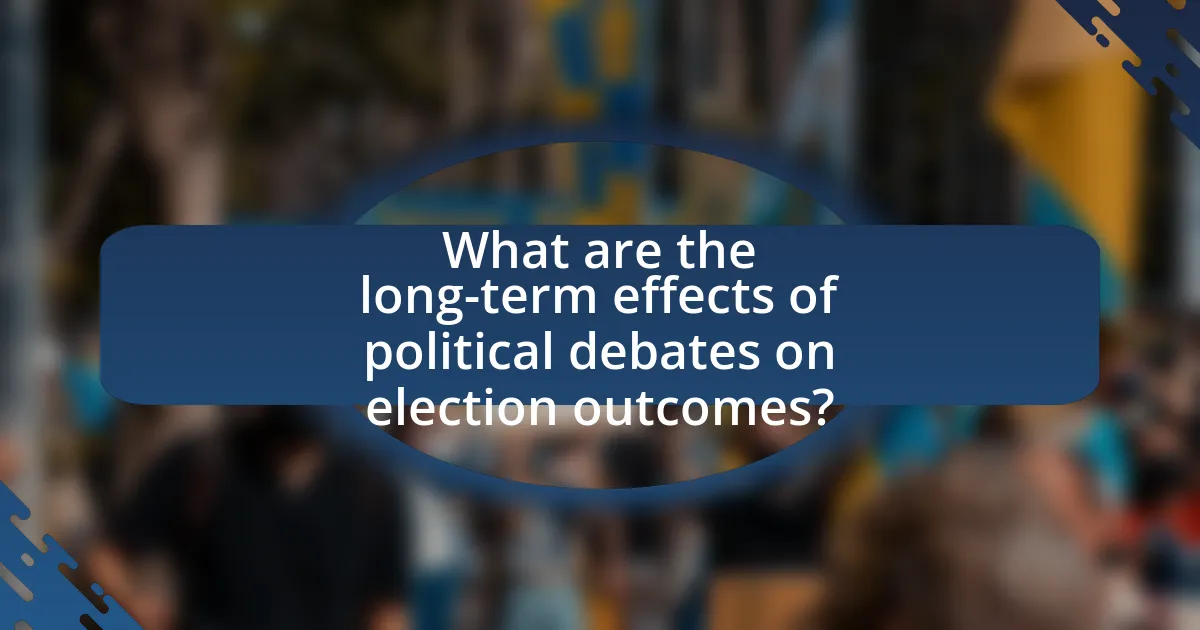
What are the long-term effects of political debates on election outcomes?
Political debates have significant long-term effects on election outcomes by shaping voter perceptions and influencing public opinion. These debates often serve as pivotal moments that can alter the trajectory of a campaign, as evidenced by historical instances such as the 1960 Kennedy-Nixon debate, which is widely credited with boosting John F. Kennedy’s image and contributing to his eventual victory. Research indicates that candidates who perform well in debates can experience a measurable increase in polling numbers, often referred to as the “debate bounce.” This effect can persist beyond the immediate aftermath of the debate, impacting voter decisions as they head to the polls. Additionally, debates can solidify party loyalty and mobilize undecided voters, further influencing the overall election outcome.
How do debates shape the narrative leading up to the election?
Debates shape the narrative leading up to the election by providing a platform for candidates to present their policies and challenge their opponents directly. This interaction influences public perception and media coverage, often framing the issues that dominate the electoral conversation. For instance, the 2016 U.S. presidential debates significantly impacted voter opinions, with post-debate polls indicating shifts in support based on candidates’ performances. Additionally, debates can highlight key issues, such as healthcare or immigration, which then become focal points in campaign messaging and voter discussions. This dynamic illustrates how debates not only inform voters but also set the tone for the overall electoral narrative.
What impact do post-debate analyses have on voter sentiment?
Post-debate analyses significantly influence voter sentiment by shaping perceptions of candidates’ performances and policy positions. These analyses often highlight key moments from the debates, providing context and interpretation that can sway undecided voters. For instance, a study by the Pew Research Center found that 63% of viewers reported that post-debate commentary affected their opinions about the candidates. This indicates that the framing of candidates’ responses and the emphasis on specific issues can lead to shifts in voter support, ultimately impacting election outcomes.
How do debates influence media coverage and public discourse?
Debates significantly influence media coverage and public discourse by shaping narratives and framing issues. When candidates engage in debates, media outlets often highlight key moments, soundbites, and policy positions, which can dominate news cycles and public conversations. For instance, a study by the Pew Research Center found that debates can lead to increased media attention on specific topics, as journalists analyze candidates’ performances and public reactions. This heightened focus can sway public opinion, as voters may align their views based on the information presented during debates and the subsequent media portrayal.
What lessons can candidates learn from past debates to improve future performances?
Candidates can learn the importance of preparation and adaptability from past debates to improve future performances. Historical examples, such as the 1960 Kennedy-Nixon debate, illustrate that thorough preparation can enhance a candidate’s confidence and delivery, while adaptability allows them to respond effectively to unexpected questions or attacks. Additionally, analyzing audience reactions and media coverage post-debate can provide insights into which strategies resonate with voters, as seen in the 2008 Obama-McCain debates, where Obama’s calm demeanor was positively received. These lessons emphasize the need for candidates to refine their messaging and presentation skills based on previous debate outcomes.
What common mistakes should candidates avoid in debates?
Candidates should avoid common mistakes such as failing to prepare adequately, which can lead to poor performance and miscommunication of their policies. Inadequate preparation often results in candidates being unable to answer questions effectively or engage with their opponents’ arguments, diminishing their credibility. Additionally, candidates should avoid personal attacks, as these can alienate voters and detract from the substantive issues at hand. Research indicates that debates focusing on policy rather than personal grievances tend to resonate better with audiences, influencing their perceptions positively. Lastly, candidates should refrain from appearing overly scripted or robotic, as authenticity is crucial in connecting with voters; studies show that relatable candidates are more likely to gain voter trust and support.
How can candidates prepare effectively for debates to maximize their impact?
Candidates can prepare effectively for debates by conducting thorough research on key issues, practicing responses to potential questions, and engaging in mock debates. Researching key issues allows candidates to understand the topics that matter most to voters, ensuring they can articulate informed positions. Practicing responses helps candidates refine their messaging and delivery, making them more persuasive. Engaging in mock debates simulates the actual debate environment, allowing candidates to develop strategies for handling challenging questions and countering opponents’ arguments. Studies show that candidates who are well-prepared tend to perform better in debates, which can significantly influence voter perceptions and election outcomes.
What best practices can enhance the effectiveness of political debates?
To enhance the effectiveness of political debates, candidates should focus on clear communication, active listening, and fact-based arguments. Clear communication allows candidates to articulate their positions effectively, making it easier for the audience to understand their viewpoints. Active listening fosters respectful dialogue and helps candidates address opponents’ points directly, which can build credibility. Fact-based arguments are essential, as they provide a solid foundation for claims and can be substantiated with data, such as polling statistics that show the impact of factual discourse on voter perception. For instance, a study by the Pew Research Center found that voters are more likely to trust candidates who provide evidence for their claims, thereby reinforcing the importance of these best practices in political debates.
